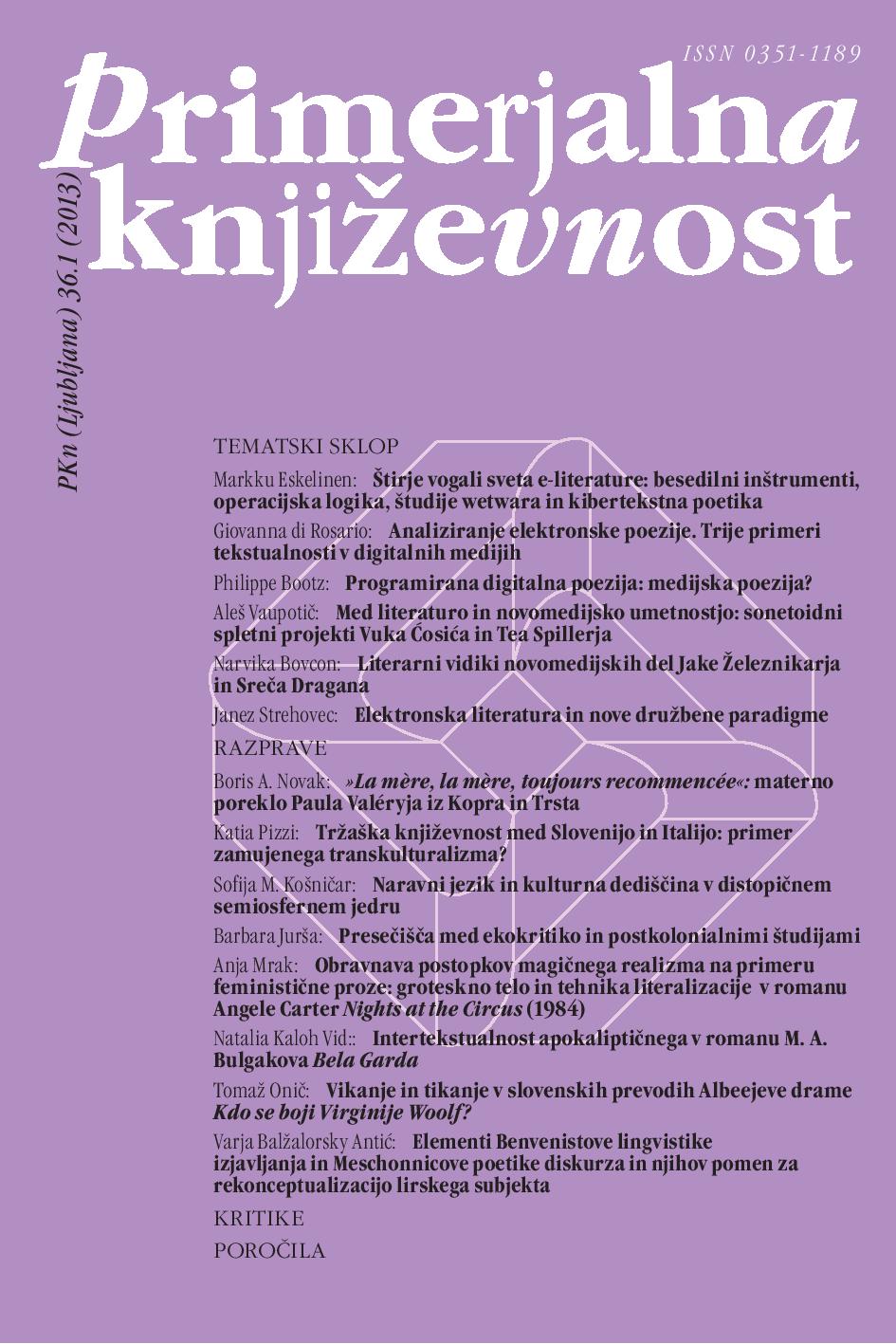Analysis of Magical Realism Techniques in Feminist Fiction. Grotesque Body and Literalization in Angela Carter’s Novel Nights at the Circus (1984)
Keywords:
literature and feminism, English literature, feminist fiction, Carter, Angela, magical realism, grotesquery, literalizationAbstract
Magical realism was traditionally associated with Latin-American or post-colonial authors on account of its distinct bipolarity, criticism of Eurocentric thought, incorporation of myths, and alternative views on history. The development of contemporary literature has shown, however, that magical realism is a literary mode employed by authors that are politically, socially, or culturally underprivileged. It follows, then, that feminist authors, whose works strive to overcome binary thought, deconstruct patriarchal images of women, and voice the female standpoint, can also utilize the conventions of magical realism to deploy their agendas. – In order to categorize a literary work as magical realism, one needs to consider thematic, formal, and sociological criteria. While based on and used for examining works of post-colonial literature, they may also be applied to feminist literature. This article examines and assesses the practicability of these criteria in interpreting feminist works of magical realism – specifically, Angela Carter’s Nights at the Circus. In doing so, I have also foregrounded some implications and objectives that feminist works contribute to the broader category of magical realism. – The analysis shows that Carter’s novel features a juxtaposition of natural and supernatural elements that are integrated in the perceptual notions of the narrator and the characters. Through a marginalized perspective and by way of narrative techniques specific to magical realism, the novel addresses social issues of gender relations and questions of power. Specifically, the article examines the image of the grotesque body in the function of parody and subversion of the traditional image of a woman and her role in society. The thematic and narrative analysis demonstrates how the image of the grotesque female body and the literalization of the concept of woman as angel work toward feminist goals. By incorporating these elements, the author challenges the European literary tradition and stresses topical social issues. Angela Carter adopts and adapts magical realism as a vehicle of feminist expression, thus revealing new possibilities for feminist writing.References
Bahtin, Mihail Mihajlovič. Ustvarjanje Françoisa Rabelaisa in ljudska kultura srednjega veka in renesanse. Prevod Borut Kraševec. Ljubljana: Literarno-umetniško društvo Literatura, 2008.
Bowers, Maggie Ann. Magic(al) Realism. London in New York: Routledge, 2004.
Carter, Angela. Nights at the Circus. London: Pan Books, 1985.
Chanady, Amaryll Beatrice. Magical Realism and the Fantastic. New York in London: Garland Publishing Inc., 1985.
Durix, Jean-Pierre. Mimesis, Genres and Post-Colonial Discourse. Deconstructing Magic Realism. New York: Macmillan, 1998.
Hegerfeldt, Anne C. Lies That Tell the Truth. Magic Realism Seen Through Contemporary Fiction from Britain. Amsterdam in New York: Rodopi B.V., 2005.
– – –. »Contentious Contributions: Magic Realism Goes British.« Janus Head 5.2 (2002): 62–86. Splet. 15. okt. 2011.
Kos, Janko. Postmodernizem. Ljubljana: DZS, 1995.
Michael, Magali Cornier. »Angela Carter’s Nights at the Circus: An Engaged Feminism via Subversive Postmodern Strategies.« Contemporary Literature 35.3 (1994): 492–521. JSTOR. Splet. 27. okt. 2011.
Moi, Toril. Politika spola/teksta. Prevod Katarina Jerin. Ljubljana: Literarno-umetniško društvo Literatura, 1999.
Pinch, Adela. Thinking About Other People in Nineteenth-Century British Writing. Cambridge: Cambridge University Press, 2010.
Squires, Judith. Spol v politični teoriji. Prevod Mojca Dobnikar. Ljubljana: Krtina, 2009.
Stoddart, Helen. Angela Carter’s Night at the Circus. Oxon: Routledge, 2007.
Virk, Tomo. Strah pred naivnostjo. Ljubljana: Literarno-umetniško društvo Literatura, 2000.
Woolf, Virginia. »Professions for Women.« The Death of the Moth and Other Essays. Harmondsworth: Penguin Books, 1965. 201–207.
Zamora, Lois Parkinson in Wendy B. Faris. »Introduction: Daiquiri Birds and Flaubertian Parrot(ie)s.« Magical Realism. Ur. Lois Parkinson Zamora in Wendy B. Faris. Durham in London: Duke University Press, 1995. 1–11.


